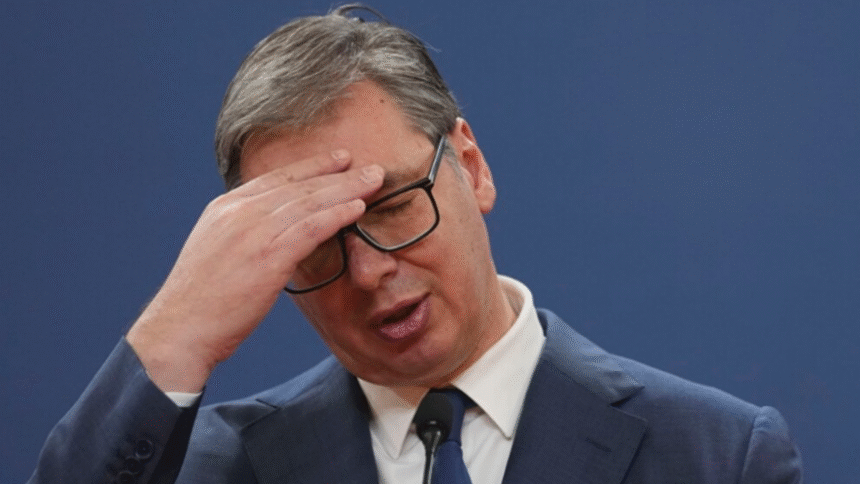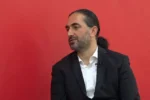Political analyst Kurt Basener, co-founder of the Berlin-based Democratization Policy Council, stated that the European Union (EU) is not deceived by the rhetoric of the Serbian government, but refrains from reacting because it has invested too heavily in President Aleksandar Vučić and does not want to take risks.
In an interview with N1 television, Basener described the current situation in Serbia as “very concerning”, highlighting that the repressive measures by the ruling Serbian Progressive Party mark a serious escalation.
He expressed disappointment with the silence of the West, particularly the EU, stressing that he does not believe Brussels truly accepts the government’s narrative portraying protesters as violent.
“It is more likely that they cling to this excuse in order to avoid changing their policy toward Vučić. They use it to call for balance and dialogue, but in reality, they are too invested in this regime and unwilling to risk it,” Basener said.
The analyst noted that Serbia’s opposition remains weak, while the student protest movement is still relatively unknown. He argued that while this represents an opportunity for democratic change, the EU views it only as a risk and potential instability.
“The EU prefers so-called ‘stability,’ even if it is false, over genuine progress. This has been a problem across the region, and Vučić is the perfect example of it,” he remarked.
According to Basener, Serbia is now entering a dangerous phase, as the authorities appear to be provoking citizens in order to justify the use of even greater force.
He criticized recent arrests on weak legal grounds as “unprecedented state violence in recent decades in Serbia”, dismissing Vučić’s claims that police acted too softly compared to Western European countries.
“The problem is that Europe does not react, nor does it clearly say that these are violations of basic principles that will affect its relations with Vučić. That is what is missing,” he said.
Basener also dismissed Vučić’s recent call for dialogue with students—whom he had previously labeled “terrorists, Nazis, and Ustashas”—as “a meaningless rhetorical gesture, a check he knows he will never have to cash.”
He further commented on the leaked recording of a phone conversation between United Group director Sten Miller and Telekom Serbia’s Vladimir Lučić, which revealed discussions on undermining N1 television. Basener described the incident as “deeply troubling and problematic.”
“Independent media are essential. Once you subjugate the press—and Vučić already controls a vast media landscape—you can control the narrative, or at least attempt to. If even the last independent voices are silenced, it would be a devastating blow to the kind of Serbia that citizens on the streets today are striving to build,” he warned.







